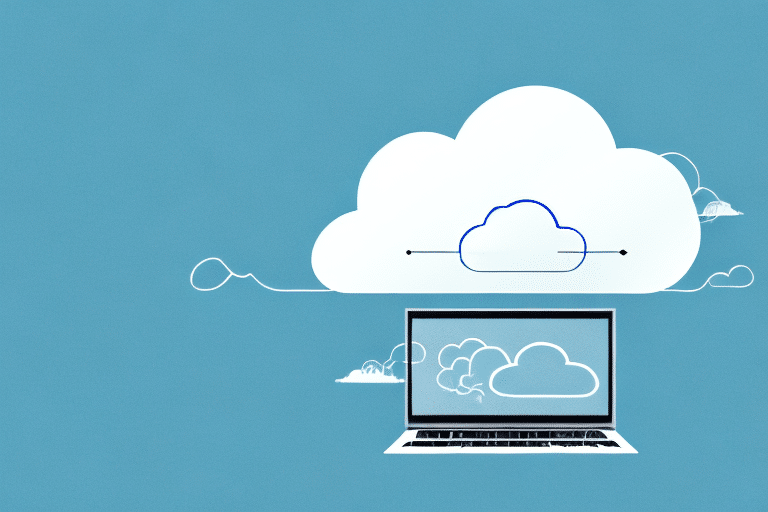In today’s data-driven world, organizations are grappling with enormous amounts of data that need to be processed, analyzed, and transformed into valuable insights. Big data processing is a critical aspect of this data journey, and traditional methods often involve managing and provisioning infrastructure, which can be complex and costly. However, with the advent of serverless computing and cloud services, big data processing has become more efficient, cost-effective, and scalable.
Google Cloud Platform (GCP) offers a suite of powerful serverless services tailored for big data processing. In this article, we will explore the benefits of serverless computing and delve into the various GCP services that enable seamless big data processing at scale.
Understanding Serverless Computing
Serverless computing is a cloud computing model where the cloud provider manages the underlying infrastructure, allowing developers to focus solely on writing code without worrying about server provisioning, scaling, or maintenance. It abstracts away the infrastructure complexities, making it an ideal choice for big data processing due to its inherent scalability and cost-effectiveness.
Key features of serverless computing include:
1. Event-Driven Architecture
Serverless applications are event-driven, meaning they respond to triggers or events generated by various data sources. These events can be data uploads, message queue events, or scheduled time-based events. When an event occurs, the serverless function is automatically invoked to process the data and generate the desired output.
2. Automatic Scaling
Serverless platforms automatically handle the scaling of resources based on the incoming workload. They automatically adjust the number of instances needed to handle the traffic, ensuring that the application can handle spikes in demand without manual intervention.
3. Pay-as-You-Go Pricing
Serverless computing follows a pay-as-you-go pricing model. Organizations are only charged for the actual compute resources used during the execution of functions, rather than paying for idle resources. This cost-efficiency makes it an attractive option for big data processing, where workloads can be unpredictable and variable.
GCP Services for Serverless Big Data Processing
Google Cloud Platform offers a wide array of serverless services that enable organizations to efficiently process and analyze large datasets. Let’s explore some of the key GCP services tailored for big data processing:
1. Google Cloud Functions
Google Cloud Functions is a serverless compute service that allows developers to build event-driven functions in various programming languages such as Node.js, Python, Go, and more. It integrates seamlessly with other GCP services and can be triggered by various events like HTTP requests, Cloud Storage uploads, Pub/Sub messages, and Cloud Scheduler.
For big data processing, Cloud Functions can be used to perform small to medium-sized tasks like data preprocessing, simple transformations, and lightweight analytics. It is particularly useful when quick response times are required for real-time data processing.
2. Google Cloud Dataflow
Google Cloud Dataflow is a fully-managed, serverless stream and batch processing service. It provides a unified programming model for both batch and real-time data processing tasks, allowing developers to focus on writing business logic rather than managing infrastructure.
Dataflow is based on Apache Beam, an open-source data processing framework. It allows users to create data processing pipelines using high-level APIs in Java, Python, Go, and other supported languages. The pipelines can then be executed efficiently at scale with automatic resource provisioning and optimization.
With Dataflow, organizations can ingest, transform, and analyze massive datasets in real-time or batch mode. It is an ideal choice for ETL (Extract, Transform, Load) workflows, data enrichment, and continuous stream processing.
3. Google Cloud Pub/Sub
Google Cloud Pub/Sub is a fully-managed messaging service that enables asynchronous communication between independent applications. It allows decoupling of data producers and consumers, ensuring that data is processed efficiently and asynchronously.
Pub/Sub supports both real-time and batch data processing scenarios. It can be used to ingest data from various sources, such as IoT devices, application logs, and external systems, and deliver them to downstream applications or processing pipelines.
4. Google Cloud Storage
Google Cloud Storage is an object storage service that offers scalable and durable storage for various types of data. It is an excellent choice for storing raw or processed big data before or after processing.
With its integration with other GCP services, Cloud Storage allows seamless data exchange between different components of big data processing pipelines. For example, data can be ingested into Cloud Storage from various sources, processed using Cloud Dataflow, and then stored back into Cloud Storage for further analysis or archiving.
5. Google Cloud AI Platform
Google Cloud AI Platform provides serverless machine learning services that can be utilized for advanced data analytics and predictive modeling. It offers pre-built machine learning models, custom model training, and hyperparameter tuning to ensure accurate and efficient model development.
For big data processing, Cloud AI Platform can be used to build predictive models based on large datasets, perform sentiment analysis, recommendation systems, and anomaly detection, among other applications.
6. Google BigQuery
Google BigQuery is a fully-managed, serverless data warehouse and analytics platform. It enables super-fast SQL queries over large datasets and supports real-time analysis of streaming data.
BigQuery is designed for high-performance and can handle petabytes of data efficiently. It provides seamless integration with other GCP services like Dataflow, Pub/Sub, and Cloud Storage, making it an integral part of serverless big data processing pipelines.
Advantages of Serverless Big Data Processing with GCP Services
Serverless big data processing with GCP services offers several advantages that make it a compelling choice for organizations:
1. Cost-Efficiency
Serverless computing follows a pay-as-you-go model, ensuring that organizations only pay for the actual compute resources consumed during the execution of functions or processing jobs. This eliminates the need to provision and maintain expensive infrastructure, making it highly cost-efficient, especially for workloads with variable and unpredictable demands.
2. Scalability
GCP’s serverless services automatically scale resources based on the incoming workload. This elastic scalability ensures that big data processing pipelines can handle large-scale data without manual intervention. As data volumes grow, the services dynamically allocate additional resources to accommodate the load, ensuring smooth and efficient processing.
3. Flexibility
The wide range of GCP services available for serverless big data processing allows organizations to design and implement custom workflows tailored to their specific needs. Whether it’s real-time streaming analytics, batch processing, machine learning, or a combination of these tasks, GCP services provide the flexibility to build and execute complex data processing pipelines effortlessly.
4. Reduced Operational Overhead
With serverless computing, GCP takes care of infrastructure management and operational tasks, allowing organizations to focus on core business logic and data analysis. This reduces the operational overhead, accelerates development cycles, and enables data engineers and data scientists to be more productive.
5. Real-time Insights
Serverless big data processing with GCP services facilitates real-time insights and decision-making. Organizations can process and analyze streaming data as it arrives, enabling them to react quickly to changing business conditions and make data-driven decisions in real-time.
6. Integration with Ecosystem
GCP’s serverless services are part of a comprehensive ecosystem, allowing seamless integration with other GCP services like AI Platform, Cloud Storage, and BigQuery. This tight integration streamlines data workflows and enables data to flow efficiently through the entire data processing pipeline.
Use Cases for Serverless Big Data Processing with GCP
The versatility of GCP’s serverless services enables a wide range of use cases for big data processing. Here are some common scenarios where serverless computing with GCP can prove beneficial:
1. Real-time Stream Processing
Serverless stream processing with Google Cloud Dataflow and Pub/Sub allows organizations to analyze and respond to streaming data in real-time. This use case is applicable in IoT data ingestion, monitoring system events, and generating real-time alerts.
2. ETL Workflows
Serverless big data processing is well-suited for Extract, Transform, Load (ETL) workflows. You can ingest data from various sources, processed using Cloud Dataflow, and stored in Cloud Storage or BigQuery for further analysis.
3. Real-time Analytics
Real-time analytics is crucial for businesses to gain insights into customer behavior, system performance, and market trends. Serverless computing enables the processing of streaming data and immediate delivery of actionable insights.
4. Batch Processing
For large-scale batch processing tasks, such as analyzing historical data, training machine learning models, or generating reports, GCP’s serverless services can efficiently handle the processing without manual intervention.
5. Predictive Modeling
Serverless machine learning services like Google Cloud AI Platform enable organizations to build predictive models based on big data. You can use these models for various applications, such as fraud detection, customer churn prediction, and recommendation systems.
Best Practices for Serverless Big Data Processing with GCP
To maximize the benefits of serverless big data processing with GCP services, consider the following best practices:
1. Data Partitioning and Sharding
When dealing with large datasets, consider partitioning the data to distribute the processing load evenly across multiple instances. Additionally, use sharding techniques to distribute data uniformly across storage systems like Cloud Storage or BigQuery tables.
2. Monitor and Optimize Costs
While serverless computing is cost-effective, it is essential to monitor usage and optimize costs continually. Use GCP’s cost management tools to identify inefficiencies and make necessary adjustments to reduce expenses.
3. Use Managed Services Wherever Possible
GCP offers a wide range of managed services that reduce operational overhead. Whenever possible, choose managed services over self-managed solutions to focus on building value-added data processing logic.
4. Design for Resiliency
Plan for failures and build resilient data processing pipelines. Consider using mechanisms like retries, dead-letter queues, and backup mechanisms to handle transient errors and ensure data integrity.
5. Leverage Auto-scaling
Take advantage of automatic scaling capabilities offered by GCP’s serverless services to accommodate varying workloads efficiently. This ensures optimal resource utilization while maintaining high performance.
6. Security and Access Controls
Implement robust security measures to protect data and resources. Use GCP’s identity and access management (IAM) to control access to services and data, encrypt sensitive information, and apply other security best practices.
Conclusion
Serverless big data processing with GCP services empowers organizations to efficiently process and analyze massive datasets without worrying about infrastructure management and scalability. GCP’s serverless offerings, such as Cloud Functions, Cloud Dataflow, Pub/Sub, and more, provide a wide array of tools to build powerful data processing pipelines.
By leveraging the benefits of serverless computing, organizations can reduce operational overhead, scale effortlessly, and gain real-time insights from their data. Whether it’s real-time streaming analytics, batch processing, or machine learning tasks, GCP’s serverless services offer a flexible and cost-efficient solution for modern big data processing challenges.





